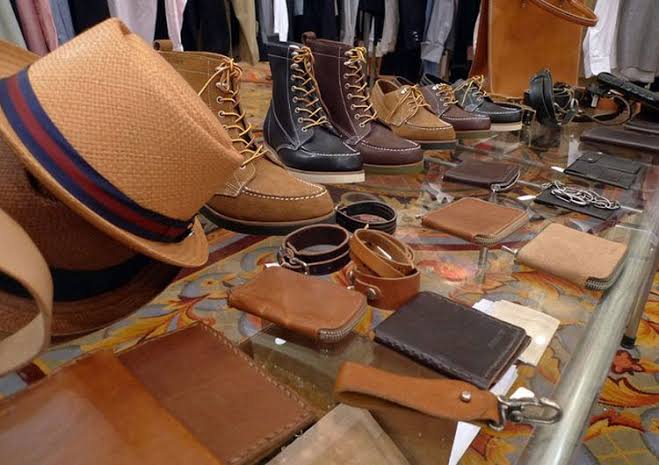Nigeria’s inability to fully maximise the foreign exchange earnings as well as the job creation opportunities in the leather sector of the economy is generating concerns among industry experts who say the sector can earn the country about $60 billion in foreign exchange.
The leather industry which is currently under performing, can become the country’s reliable foreign exchange earner in line with the new direction and the on-going efforts by the government to move the country towards zero-oil economy. As a way of achieving this goal, the President Muhammadu Buhari-led administration launched the Economic Recovery and Growth Plan (ERGP), which identified leather as one of the strategic non-oil resources to be developed under its economic diversification programme.
The northern Nigerian state of Kano is undoubtedly the biggest market for hide and Skin in West Africa, a commodity used for the manufacture of finished leather products, such as shoes, bags, among others, that are in high demand in the country. About 20 million pairs of shoes are estimated to be imported from countries such as Italy, Japan, and China into Nigeria yearly, despite the nation`s tremendous comparative advantage in the leather sector.
Industry experts are of the view that Nigeria has the capacity to generate #24.5 billion from the Leather sector, as well as create 700,000 direct and indirect jobs annually, if the sector is properly managed. The commercial city of Kano is the regional hub for leather activities in West Africa, since the advent of the Tran-Saharan Trade, and it presently houses quite a number of tanneries involved in the processing of wet blue leather for exportation. Experts believe government must attract huge investment into the sector along the value chain, instead of promoting the exportation of raw leather, as it has been the case over the years.
Speaking during a Validation Workshop on National Leather and Leather Products Policy held recently, in Sokoto, North-West Nigeria, Ogbonnaya Onu, Minister of Science and Technology, described the leather sector as a gold mine which government is interested in. The Minister, who was represented at the occasion by Prof. Okechukwu Okwuoma, Director-General, National Centre for Technology Management, disclosed that the government was working towards making Nigeria a production hub for finished leather products. With a growing population of about 198 million people, and gate way to many economies in the Sahel region of Africa, Nigeria is a huge market for finished leather products.
Commenting on the neglect of the leather sector at a forum recently, Mohammed Sagagi, an economist, who works as a consultant for UK `aided intervention programme- GEMS 1, a scheme implemented to assist Nigeria develop a market driven solutions to the exploration of its leather potential, said Nigeria needs to quickly move away from being a monolithic economy.
“Nigeria has remained a resource poor country threatened by instability in crude oil price in the international market. To me this is the time for the government to intensify the implementation of the diversification of the economy away from oil.
“As it is today, crude oil still constitutes 20 percent of the country `s Gross Domestic Product (GDP), and accounts for over 80 percent of government’s revenue and 90 percent of its foreign exchange earnings” Sagagi cautioned.
The Paris–based International Energy Agency (IEA), in its recent report has also attempted to raise awareness for the need for economic diversification in large oil dependent economies, such as Nigeria. Leather is a durable and flexible material created by the tanning of animal raw hide and skin, often cattle and goat hide, which are hugely available in the northern part of the country, where livestock breeding is an integrated part of household activities in the region.

 Health & Fitness3 days ago
Health & Fitness3 days ago
 Featured7 days ago
Featured7 days ago
 Education1 week ago
Education1 week ago
 Business1 week ago
Business1 week ago
 Aviation5 days ago
Aviation5 days ago
 Business7 days ago
Business7 days ago
 Crime1 week ago
Crime1 week ago
 News6 days ago
News6 days ago

